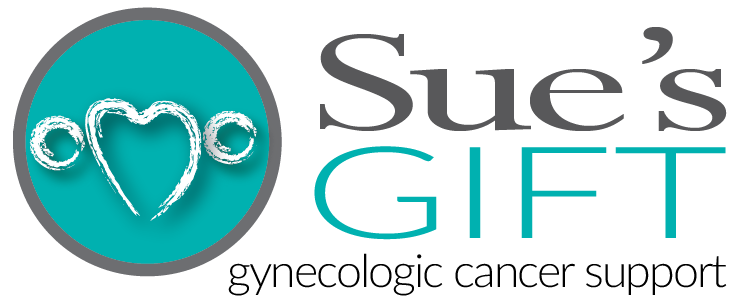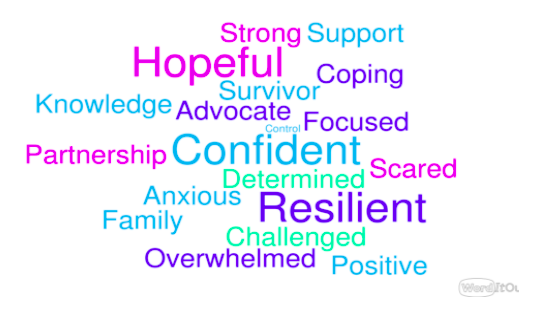The Power Of Words
“The most powerful words in the universe are the words you say to yourself.”
via Word It Out
From Victim to Victor, by Harold Benjamin, Ph.D., was a popular book published several years ago that encouraged cancer patients to participate actively in healing. While that concept is a worthy endeavor, I never liked either of those words, “victim” or “victor.”
Referring to cancer patients as “victims” was commonplace when I became an oncology social worker in the 1980s. Labels were common and even dehumanizing in those days. I remember frequently hearing references to “The pancreas in Room 1020” or “The colon in 613.” Fortunately, one doesn’t hear “cancer victim” much anymore as it’s been replaced by “patient.”
The word “patient” originates from the Latin patiens, a sufferer, a person without control, passively waiting for something to happen. Even though I find myself saying it occasionally, I’m not fond of using the word “patient” because even that label is…well, still a label.
Today a person diagnosed with cancer might be referred to as a patient, a survivor, a warrior, a fighter, a conqueror, an overcomer, a thriver, or even a hero. Each word conjures up an image, but for some people, none of these words feel accurate because it puts someone in a category with which she or they may not identify. I avoid any of those terms and use the phrase, “Someone who has had a cancer diagnosis,” because that is a factual statement and respects the whole person without categorizing or labeling.
Consider the labels you pin on yourself, including a role or an emotion. Take, for example, a 40-year-old woman whose labels might include being a divorcée, a mother, an employee, a jogger, an artist, a gardener, scared, overwhelmed, confident, shy, determined, or angry. Each word suggests a circumstance or behavior. A confident employee is likely to act differently than an angry employee. Likewise, a terrified person with cancer will act differently than someone determined to use all avenues to eradicate the disease. Do you form a mental picture when reading each label?
How we approach any situation will be determined by the words we use because our words can help us move forward with hope and confidence or render us immobilized. The familiar childhood rhyme, “Sticks and stones may break my bones, but words will never hurt me,” reflects the concept that words don’t have an impact. But words do matter; others’ comments can hurt or not accurately reflect who we are. A person’s own words – one’s self-talk – can be harmful by perpetuating negativity, helplessness, or a victim mentality, or they can be a powerful tool to promote optimism, well-being, and resiliency.
You can gain insight into the power of your words as you create your own Wordle by writing down the words you use to describe your cancer or life experience. Remember, the most powerful words in the universe are those you say to yourself because your words shape your emotions, which determine your behavior.
What labels do you use to describe yourself? What are your words?
Leave feedback for the author here. (Comments are not posted online.)

